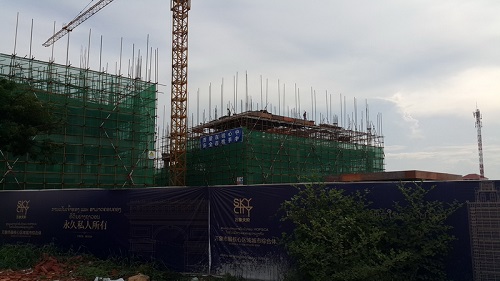Vientiane Property Market Set To Hot Up
Growth in Vientiane residential house and apartment construction will remain slow for the remainder of this year but is expected to accelerate by 10 percent next year.
According to the Managing Director of RentsBuy, Mr Houmphan Xayalath, growth is slower because many projects in Laos rely on Chinese investors who are being restrained under the Chinese government’s policy against corruption.
This is discouraging investors from putting their money into new projects, and as a result growth in apartment and house rentals has eased but is expected to increase after Laos joins the Asean Economic Community (AEC) at the end of the year.
His assessment was that the flow of foreign investment into the country as well as property construction would boom in the near future.
Mr Houmphan said real estate construction had grown rather more slowly this year at 5 percent down from last year.
However, he thanked the government for its 2011 policy that allowed local residents to convert their properties into capital, and the setting up of Special Economic Zones which opened up foreign investment for development, which helped to boost property construction.
He noted the construction of condominiums and offices for rent had continued to increase and work on several large projects also resumed this year.
For example, projects such as Vientiane New world, Vientiane Centre, Lao World, Latsavong Plaza, Sky City, and the That Luang Marsh Special Economic Zone which has 18 condominium towers are still under construction.
“At present, various investors, especially foreign professionals, are entering the property market and are big targets for real estate agents in Laos,” Mr Houmphan said.
Furthermore, he noted that investment in apartments was stronger than the building of houses for rent or sale, which was more focused on local residents.
Meanwhile, property investment in Vientiane’s downtown was reaching a peak, which meant there was less opportunity for growth compared to the suburbs where many government offices are under construction or planned.
He believed this would focus real estate investment on the capital’s suburbs even further.
Source: Vientiane Times

